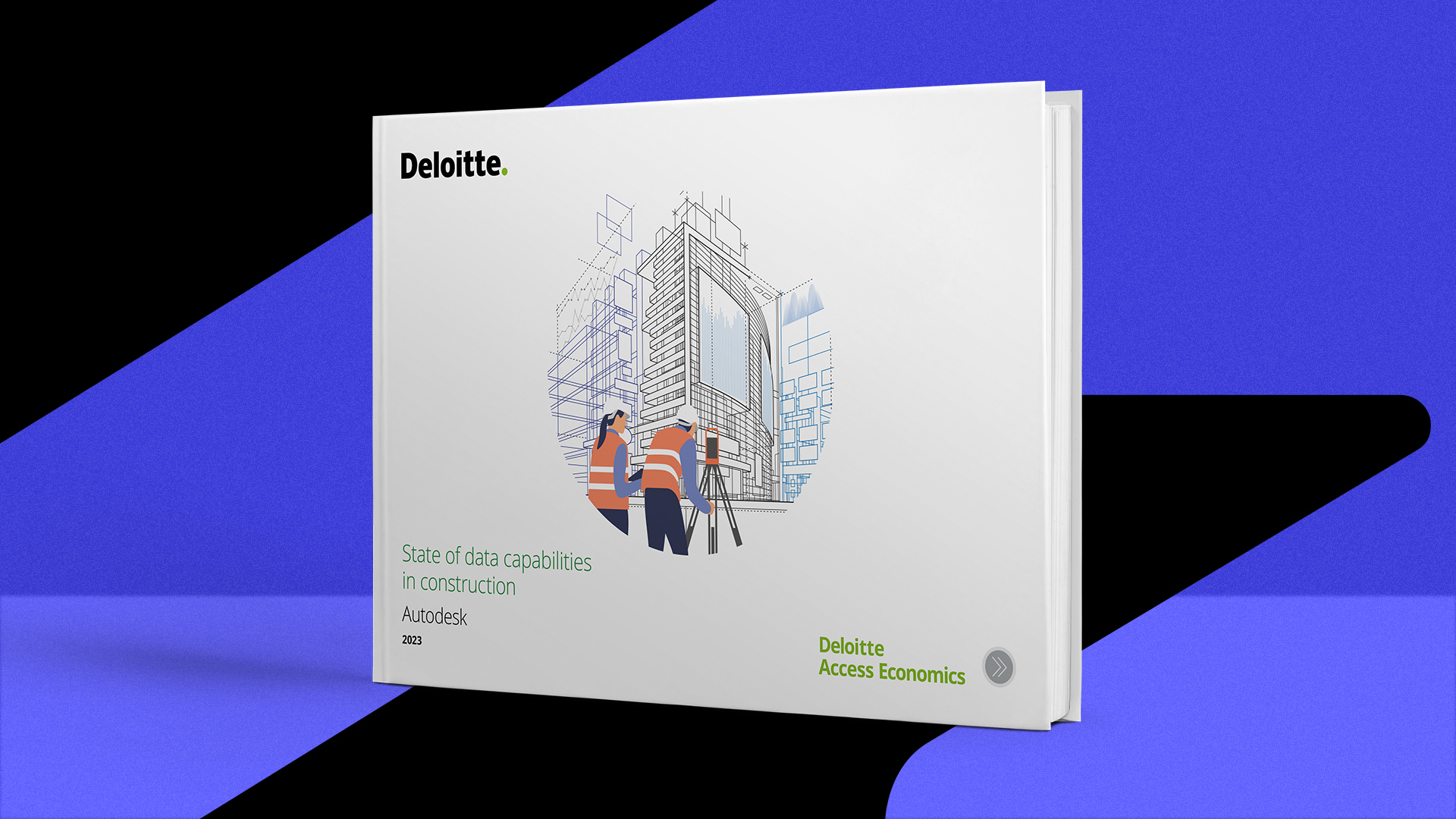
Construction companies are generating a vast amount of data every second. Whether it's a bid submitted, an issue reported, or a new change order approved, you're likely sitting on a goldmine of information that can be used to improve efficiency, reduce costs, and make better decisions.
The question is, are you actually harnessing this wealth of data?
New market research from Deloitte Access Economics, commissioned by Autodesk, shows that over 80% of construction companies still have room improve their data capabilities. By underutilizing their data potential, construction firms are leaving profits on the table—literally.
Deloitte surveyed approximately 1,275 respondents in 12 countries on their data practices. Companies classified as data leaders can expect a 50% increase in average profit growth rate each year compared with beginners. For a business with US$25 million in annual profits, this could equal a $700,000 increase in profits.
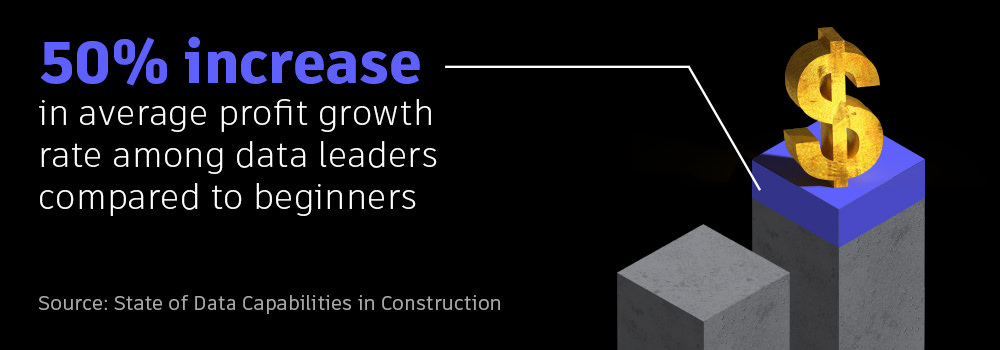
Learn how to become a construction data leader and grab your free copy of the report.
Looking for the report’s top highlights? Read on to find out what defines a data leader and how you can elevate your data strategy.
For this report, Deloitte developed a Data Capability Assessment that classified businesses into Beginner, Emerging, and Leader categories. Factors that differentiate leaders from beginner or emerging companies include:
Note: The report contains a detailed tabular breakdown that compares Beginner, Emerging, and Leader categories so you can see how your data practices stack up against other firms. Download the report to learn more.
The good news for construction companies is that data leaders are made, not born. Any company can become a construction data leader, and the report covers key priority areas on how you can do it.
Read on to see a summary of the study's findings.
Construction professionals should be spending time acting on data instead of looking for it.
Yet according to the report's findings, construction managers and executives spend an average of 11.5 hours per week researching and analyzing data. And those in BIM/VDC and preconstruction roles spend even more time looking for data each week, averaging 12.3 and 13.4 hours per week, respectively.
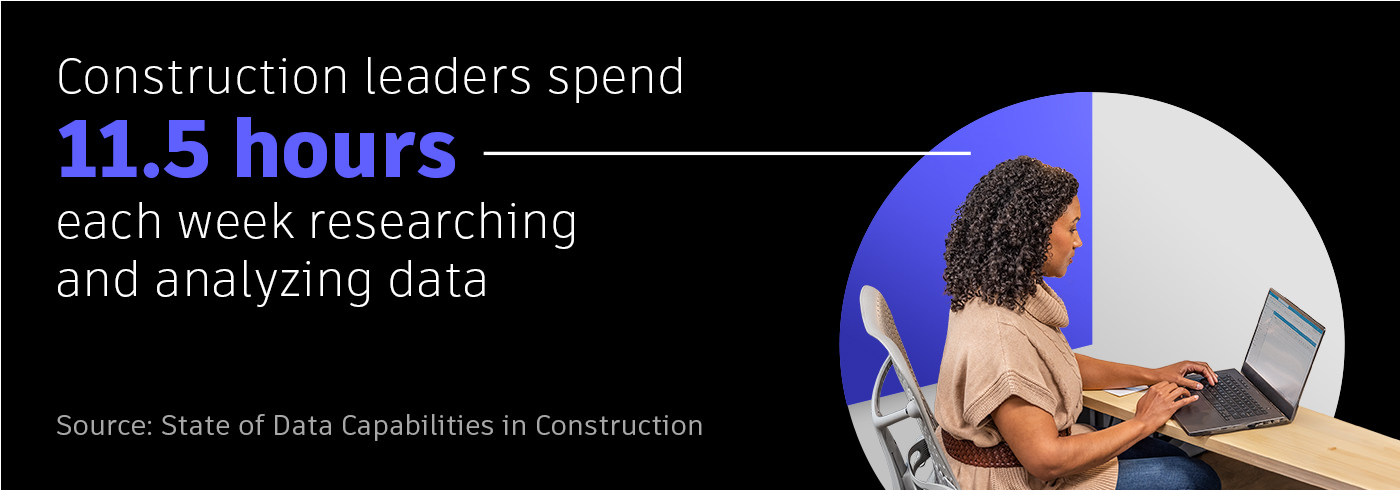
Deloitte and Autodesk's research suggests construction companies can save time and money by making data more accessible and actionable for teams. This could involve investing in analytics tools and technologies to ensure team members know where and how to find the information they need.
Some firms have found success in developing data dashboards and reports tailored to different teams’ needs. That way, workers can spend more time using data rather than digging for it.
Take DPR Construction. As profiled in the Deloitte report, the company recently implemented “Project Noise,” a central repository for vetted and certified dashboards and reports. The goal is to reduce non-critical reporting and instill confidence in the reliability and accuracy of the data.
“As the business has grown, the hunger for data has increased rapidly,” shared Rob Altomare, Data Analytics Lead at DPR. “We have had to make sure our investments in capabilities match not what we are currently doing, but what we want to be doing 5 or 10 years from now.”
Construction companies are adept at capturing data, but there's room for improvement when analyzing and using all that information.
The report's findings show that the average construction company collects and analyzes eight out of 11 types of data presented in the survey, but only collects, analyzes, and makes decisions based on three data types.
For instance, financial data is the most frequently collected data type, with 86% of companies reporting they capture it. However, only 33% of firms said they analyze and leverage financial data to make decisions.
It's unsurprising that firms find it challenging to analyze and use their data. According to FMI, construction companies produce about 2.5 quintillion bytes of data daily; as such, analyzing and making sense of all that info is a massive lift.
Fortunately, teams don't have to parse through their data row by row or file by file. Emerging technologies like artificial intelligence can quickly analyze terabytes of construction data, so project members can easily get the insights they need.
Take, for instance, Construction IQ, which uses built-in AI and machine learning features to help users predict, prevent, and manage project risks. Intelligence tools like Construction IQ allow teams to prioritize issues, identify high-risk RFIs, and even detect safety incidents so projects continue to run smoothly.
If you want to be a data leader, there's a good chance that the talent and resources you need already exist within your firm.
Deloitte's survey results show that companies who provide data training to all team members are 2.5 times more likely to be data leaders, compared with those who don't offer training. Empowering your teams to be more adept at handling data can also reduce the amount of wasted time searching for more information. After all, when teams know how to access and use data more effectively, they can figure out how to uncover the insights they need faster.
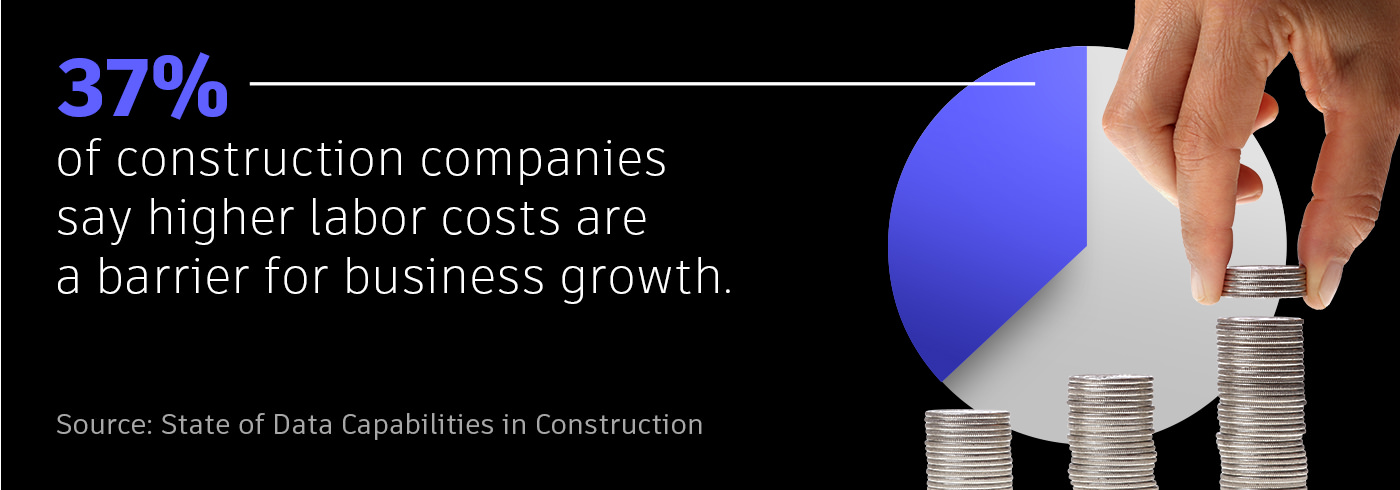
Beyond strengthening your data capabilities, providing better in-house training can also unlock growth opportunities. The study's findings show that workforce-related challenges are ranked in the top five most common barriers to business growth:
Upskilling your current team members can help you address these issues while propelling your firm to becoming a data leader.
It's no secret that digital transformation is one of the keys to construction success today and in the future. When your teams are equipped with the right technologies, they can work efficiently and produce better results.
But most digital tools require accurate data and inputs to function optimally. That's why data is a critical ingredient in the success of your tech initiatives.
Deloitte and Autodesk's research suggests that improving your data capabilities can help unlock more advanced tech adoption.
When comparing leaders in data capabilities with those in the beginner category, Deloitte found that leaders are:
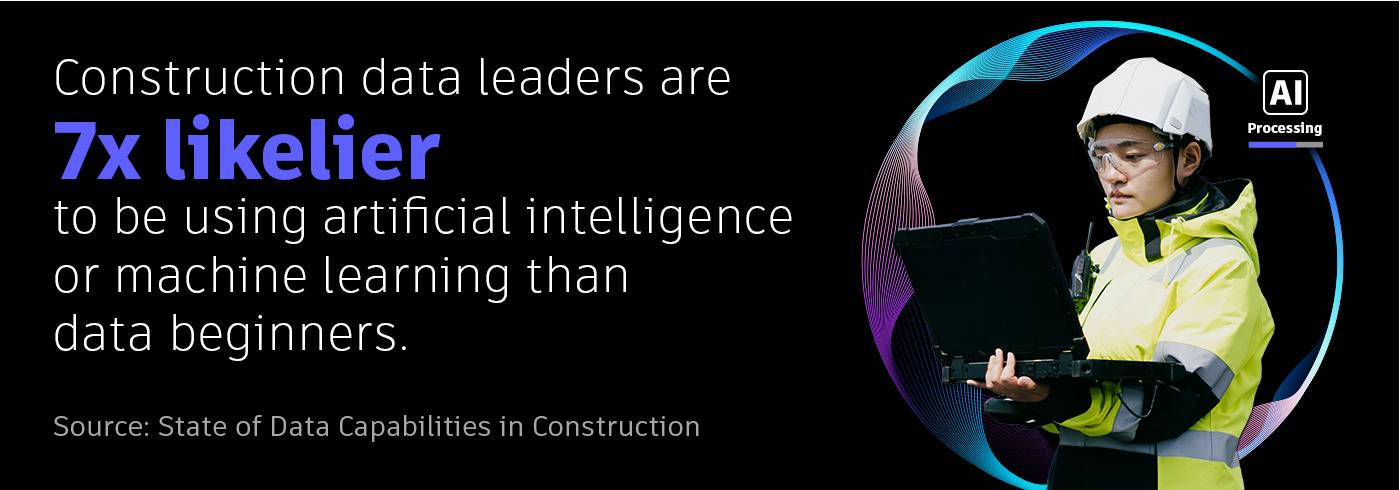
The data is clear: construction companies that embrace data and digital transformation are better positioned to succeed.
We've shared several key insights in this post, which is just a glimpse of what the full report has to offer. Be sure to grab a copy and dig deeper into the data practices of construction firms today. You'll learn how different regions and role types approach data use, strategy, and talent. But most importantly, you’ll discover practical steps for enhancing your company's data capabilities.
